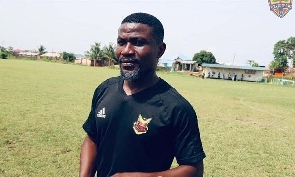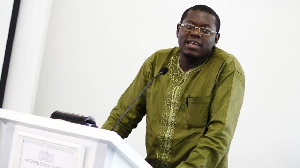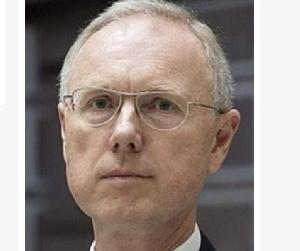- Home - News
- TWI News | TV
- Polls
- Year In Review
- News Archive
- Crime & Punishment
- Politics
- Regional
- Editorial
- Health
- Ghanaians Abroad
- Tabloid
- Africa
- Religion
- Election 2020
- Coronavirus
- News Videos | TV
- Photo Archives
- News Headlines
- Press Release
Business News of Friday, 11 April 2003
Source: gna
Ghana's budget receives $110 mn support
Ghana is expecting 110 million dollars as a direct support for her 2003 budget from donors, it was announced in Accra on Thursday.
Development partners, who have currently agreed to direct some of their development support directly into the budget includes the World Bank, African Development Bank, European Union, United Kingdom, Canada and The Netherlands.
The Ministry of Finance in a statement its Public Relations Officer, Mr Ala-u-deen Ismail-Rashid, signed for the Minister of Finance, Mr Yaw Osafo-Maafo said, "direct budgetary support is an untied aid".
"Funds are provided in support of government programmes, which focus on growth and poverty reduction".
It said the untied aid "is a vote of confidence in the modest progress the government has made to date towards the control and monitoring of public expenditures".
The statement said the development partners were willing to rely on government financial management and accountability systems in delivering development aid.
"Our responsibility is to use these resources in a way that will bring the maximum benefits to Ghanaians".
It said, "the Ministry of Finance, acting on behalf of the Government of Ghana and our Development Partners (DPs) endorsed a Framework Memorandum that will guide the Multi-Donor Budgetary Support arrangements at the Mini-Consultative Group meeting held in Accra on March 24, 2003".
The statement said: "It is important to note that Parliament was briefed on this Framework Memorandum while the Minister was seeking support for the passage of the Appropriation Act on Friday 28th March 2003.
"For Ghana, aid inflows have long been an important external resource. They provide significant support for our development expenditures. However, aid inflows have dwindled and have also become less predictable since the 1990s.
"We have realised that Ghana is not short of goodwill and pledges of assistance to help our development efforts.
"Ghana rather faces a peculiar problem. Much of the support sits in different boxes and we are often unable to meet the different donor requirements and conditionalities that will trigger disbursement.
"Delays and shortfalls in donor inflows have often forced government to cut back on development expenditures. Sometimes, the shortfalls have resulted in unplanned domestic financing or in non-concessional external borrowing," the statement explained.
This obviously imposes additional burden on future budgeting.
The statement recalled that in April 2002, the Government and her Development Partners began discussions on a new initiative called the Multi-Donor Budgetary Support, which would make the partners to contribute funds directly into the Consolidated Fund and government would use the resources to finance development expenditures as outlined in the budget and approved by Parliament.
It said: "The disbursement of funds will be based on how well the government is carrying through its programmes of growth and poverty reduction and transforming institutions that make budget planning and implementation effective, and on how well the economy is performing based on macro-economic and social indicators.
The new arrangements represent a major improvement in government-donor relationships and it is expected to simplify disbursement procedures and practices; improve the predictability of aid inflows and prevent the need for matching funds, which in the past had been one of the causes of delays in disbursements.










